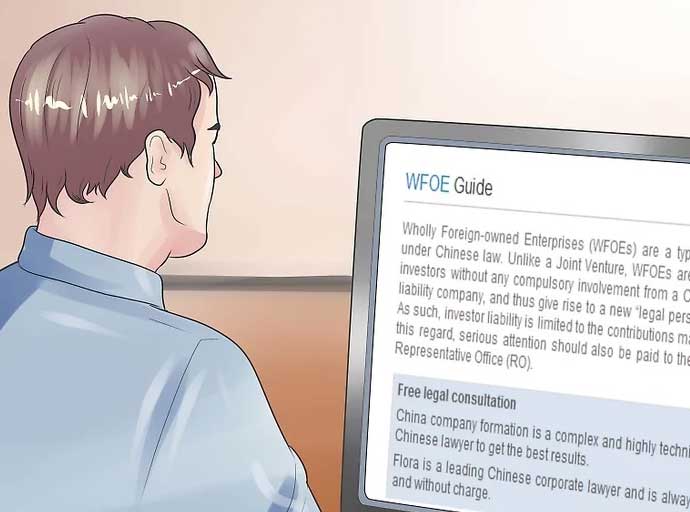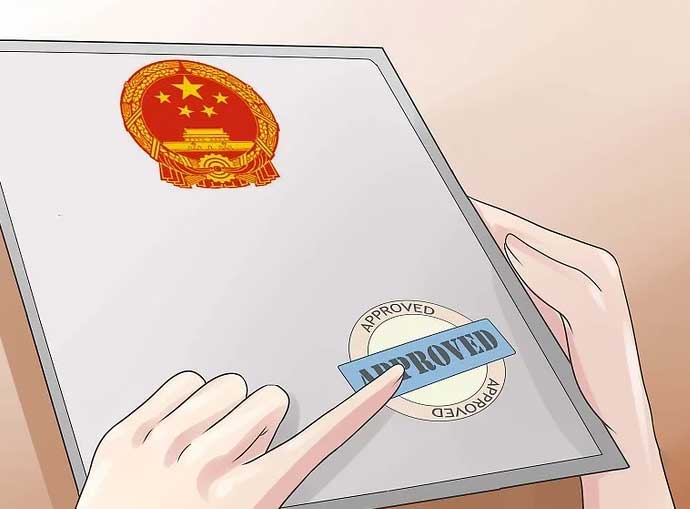This article focuses on what is required to form a Wholly Foreign Owned Entity (WFOE) in China. Foreign companies can go into China as a WFOE, as a Representative Office (RO), or as part of a Joint Venture (JV). For the last few years, well over half of all foreign companies are choosing to enter China as a WFOE
Steps(start up business in china)

1.Determine if the proposed WFOE will conduct a business approved for foreign investment by the Chinese government. For example, China prohibited private entities from 100% engaging in mining, education, hospital and others. Be sure your business will be legal.

2.Provide documentation. The investor in/owner of the WFOE must provide the documentation from its home country proving it is a duly formed and validly existing corporation, along with evidence showing the person from the investor who is authorized to execute documents on behalf of the investor. The investor also must provide documentation demonstrating its financial adequacy in its home country.

3.Have the correct documents. The following documents are normally needed from the investing business entity:
Articles of Incorporation or equivalent (copy) Business license, both national and local (if any) (copies) Certificate of Status (original)(U.S. and Canada) or a notarized copy of the Corporate Register for the investor or similar document (original)(Civil Law jurisdictions) Bank Letter attesting to the account status of the investor company (original). Description of the investor's business activities, together with added materials such as an annual report, brochures, website, etc.
4.Submit the four documents above in Chinese and stamped by relevant translation institution. The last one may be translated into Chinese or summarized in Chinese.

5.Provide proof of ownership. Many investors create special purpose companies to serve as the investor in China. China's company regulators have become accustomed to this process. However, the Chinese regulators will often still seek to trace the ownership of the foreign investor back to a viable, operating business enterprise.

6.Get Chinese government approval for the project. In China, unlike in most countries with which Western companies tend to be familiar, approval of the project by the relevant government authority is an integral part of the company registration process. If the project is not approved, the company will not be registered. The following documents for the proposed WFOE must be prepared for registration/project approval:
Articles of Association. This document will set out all of the details of management and capitalization of the company. Nothing can be left for future determination; all basic company and project issues must be determined in advance and incorporated in the Articles. This includes directors, local management, local address, special rules on scope of authority of local managers, company address, and registered capital. Feasibility Study. The project will not be approved unless the local authorities are convinced it is feasible. This usually requires a basic first year business plan and budget. We typically use the client produced business plan and budget to draft up the feasibility study (in Chinese) that will satisfy the requirements of the Chinese approval authority. Leases: An agreement for all required leases must be provided. This includes office space lease and warehouse/factory space lease. It is customary in China to pay rent one year in advance and this must be taken into account in planning a budget because the governmental authorities will be expecting this. But Chinese service agents can usually offer you registration address for free. So a lease is not necessary if your involved business is not regulated to register under an actual address. Most often, the registration places and the operating places are not same. Proposed personnel salary and benefit budget. If the specific people who will work for the company have not yet been identified, one must specify the positions and proposed salaries/benefit package. Benefits for employees in China typically range from around 30% to 40% of the employee base salary, depending on the location of the business. Foreign employers are held to a strict standard in paying these benefit amounts. The required initial investment includes an amount sufficient to pay salaries for a reasonable period of time during the start up phase of the Chinese company. e. Any other documentation required for the specific business proposed. The more complex the project, the more documentation that will be required.
7.Prepare all of the above documents in Chinese.

8.Wait. It usually takes two to three months for governmental approval, depending on the location of the project and its size and scope. Large cities like Shanghai tend to be slower than smaller cities. The investor must pay various incorporation fees, which fees vary depending on the location, the amount of registered capital and any special licenses required for the specific project. Typically, these fees equal a little over 1% of the initial capital.
On large and/or complex projects, the approval process often involves extensive negotiations with various regulatory authorities whose approval is required. For example, a large factory may have serious land use or environmental issues. Thus, the time frame for approval of incorporation is never certain. It depends on the type of project and the location. Foreign investors must be prepared for this uncertainty from the outset. 9.nother important thing is that each city or province has their own favourable policy for foreign investment here in China, so before your investment, you are suggested to hire a local business consultant, say, Ya Xin, to find out which city is the best choice for your project in China.